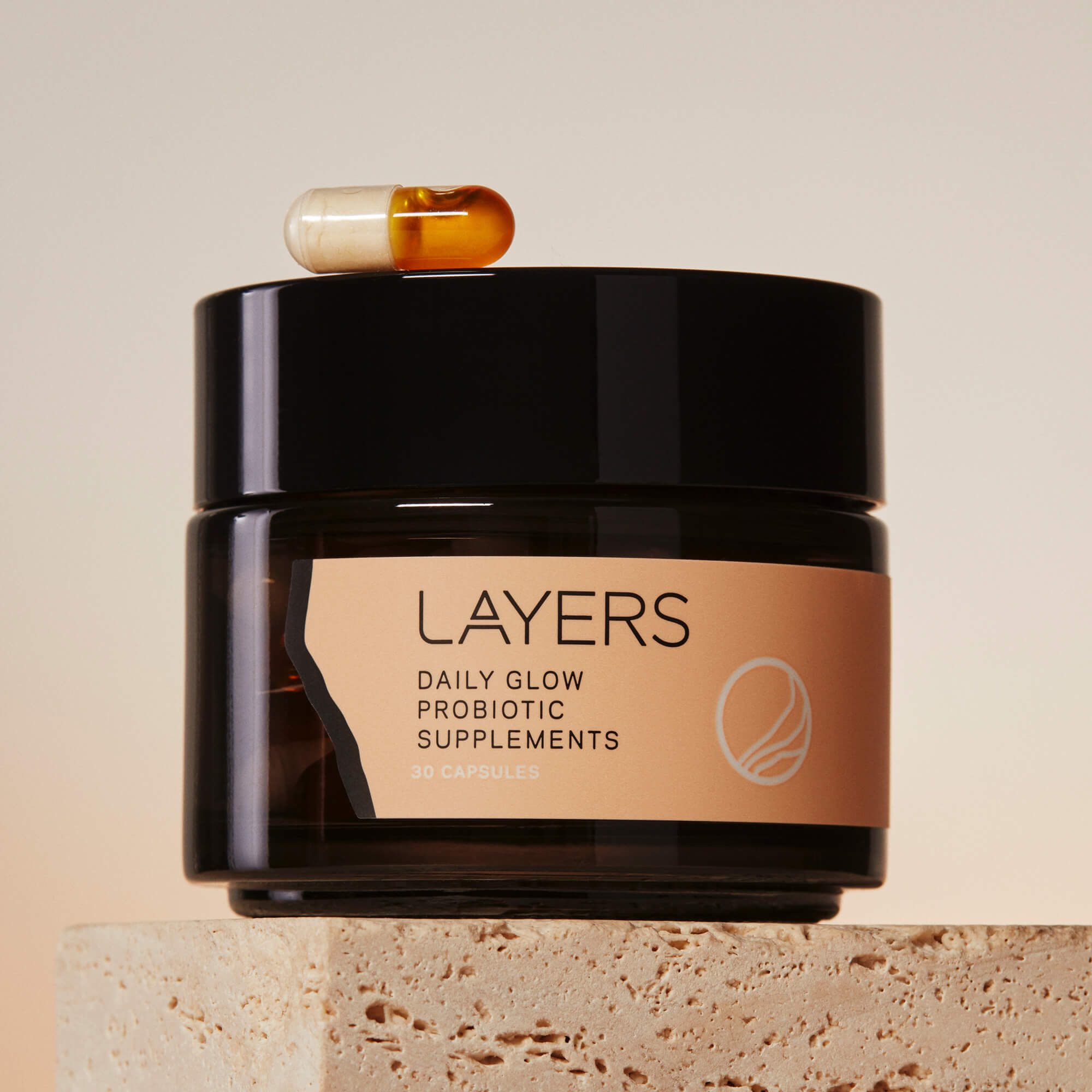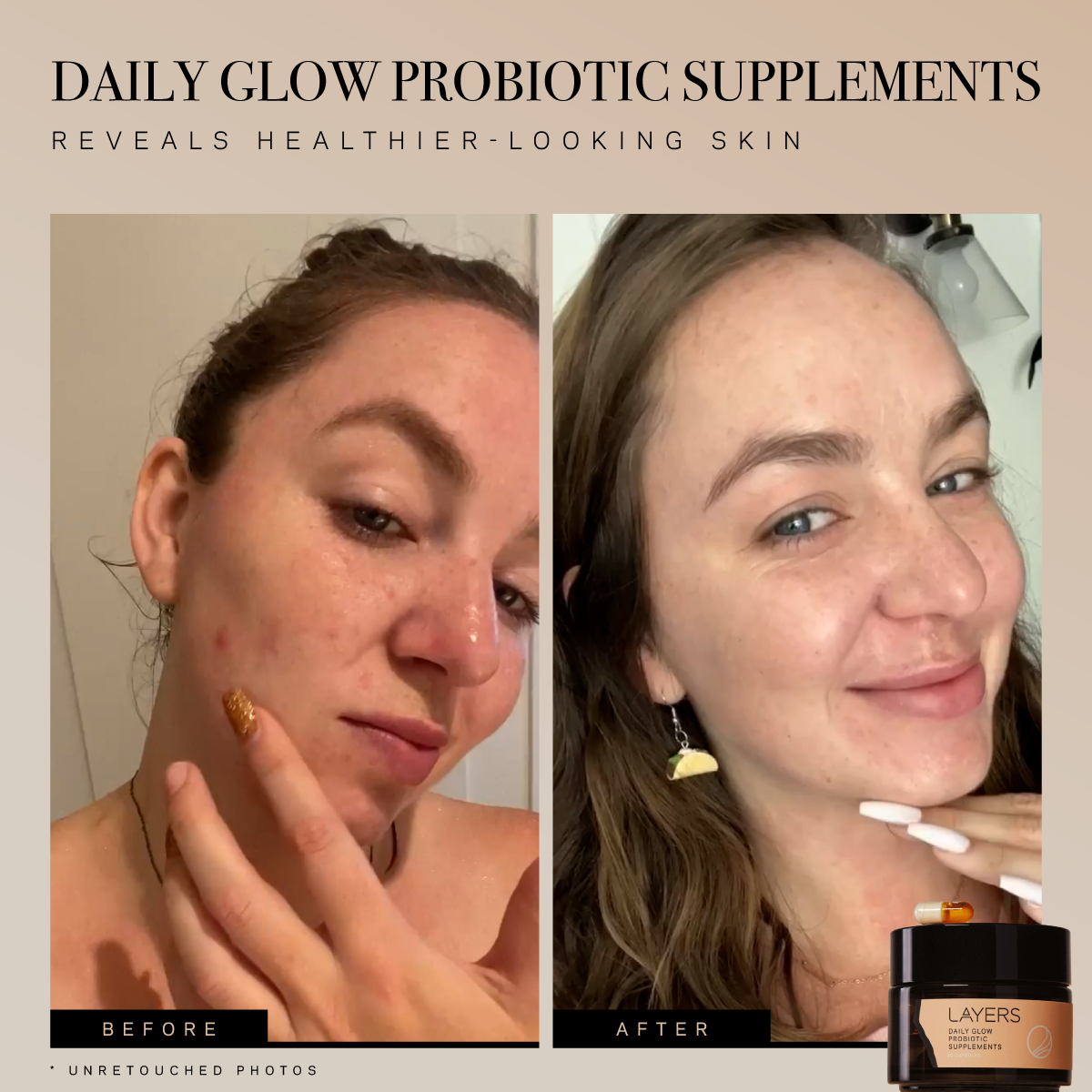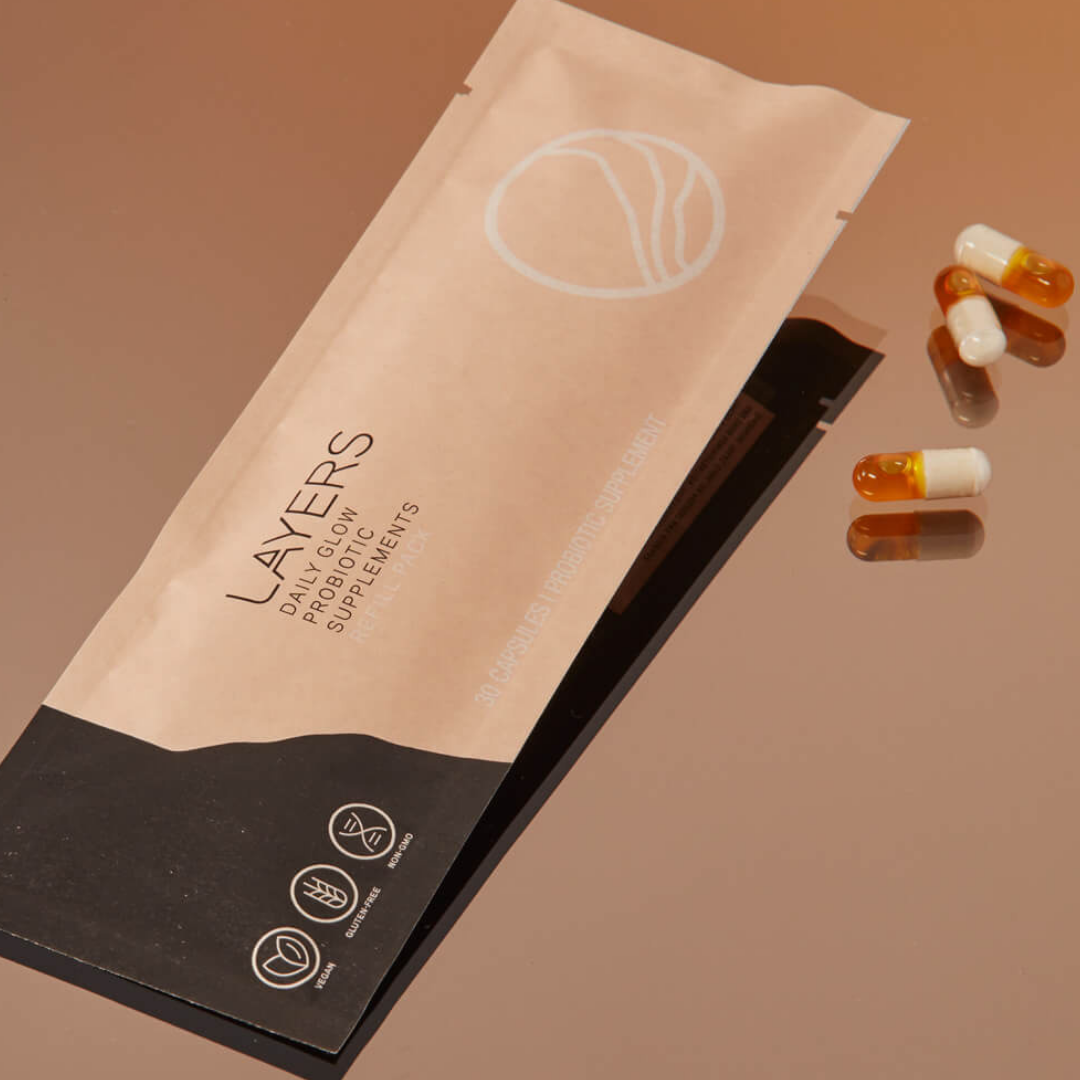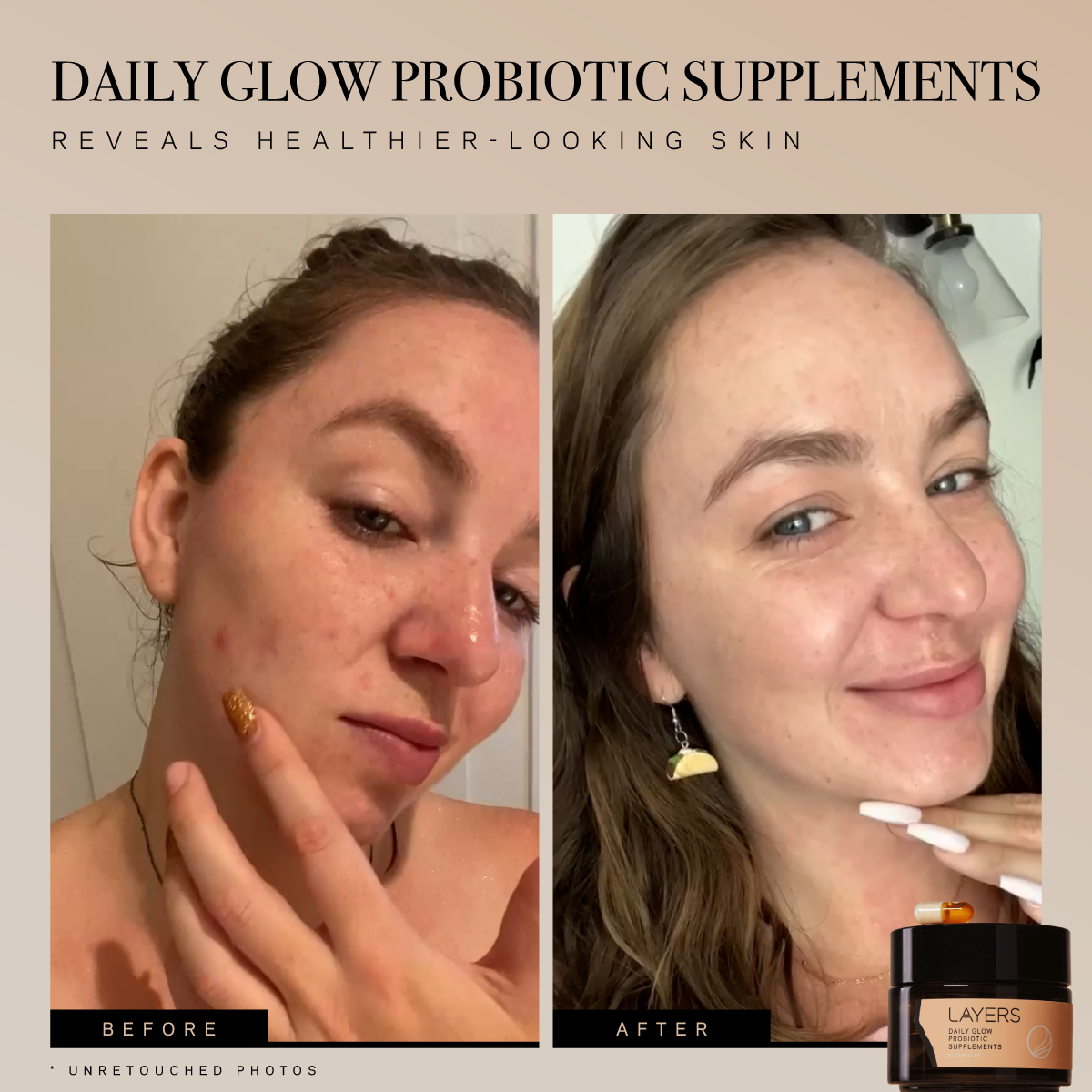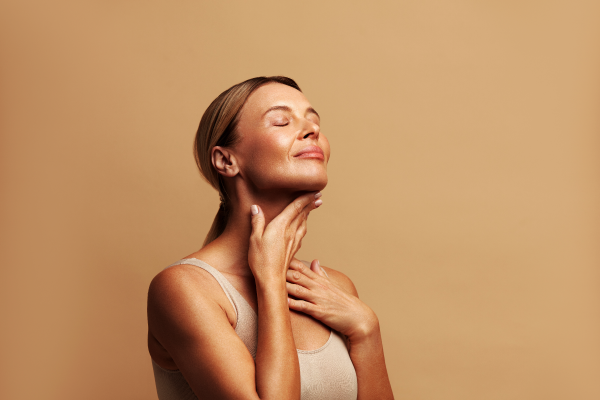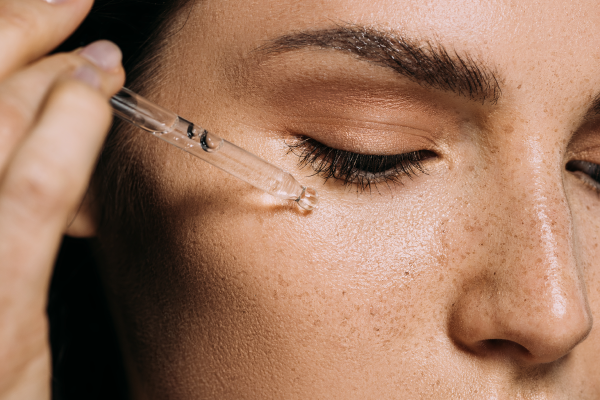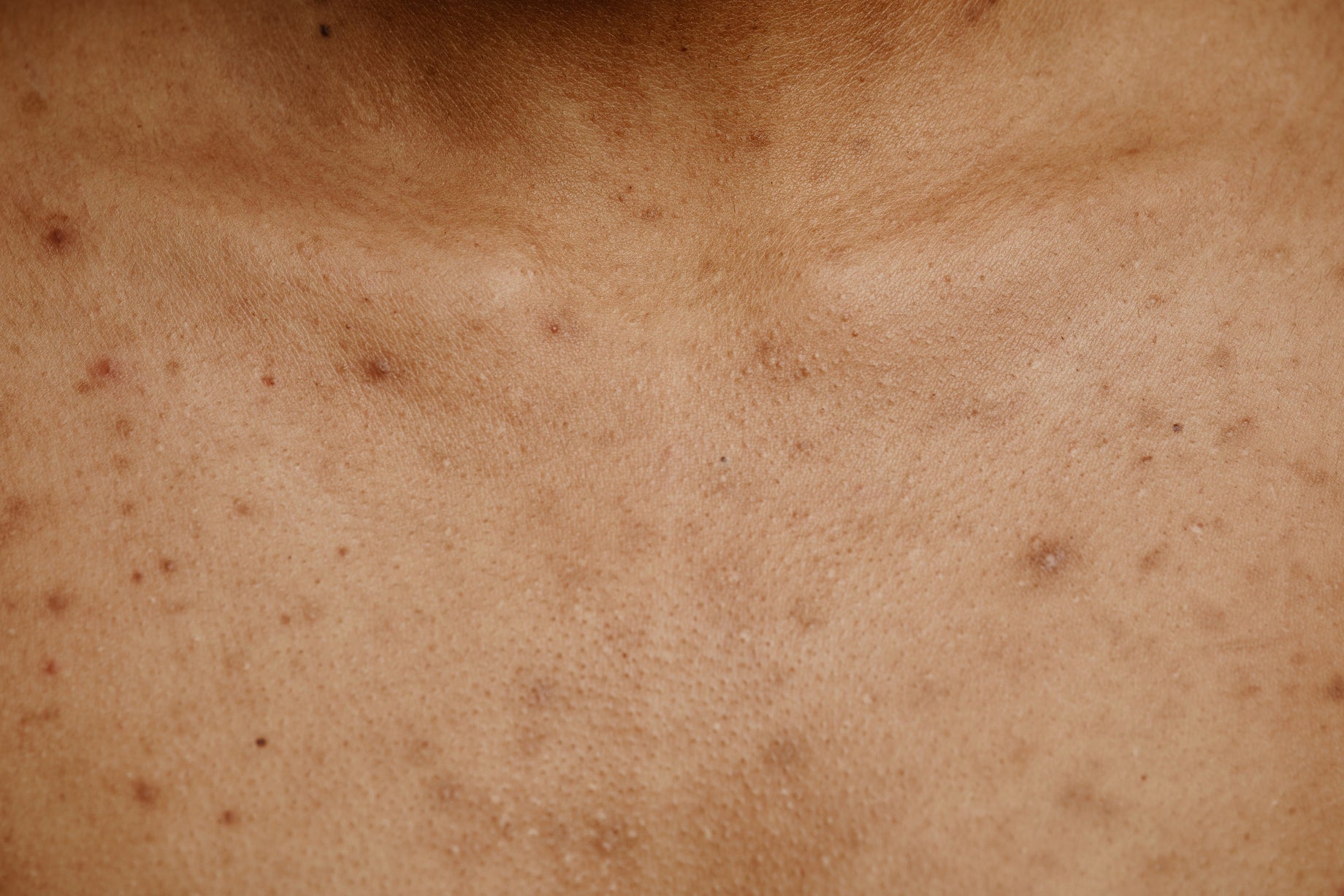Science is pointing us to probiotic skincare as a gentler approach to fighting acne. Here’s what you need to know.
Acne is one of the most troublesome skin conditions, affecting millions of people worldwide. Its causes are individual and complex, but generally linked to a combination of excess oil production, clogged pores, bacterial overgrowth, and inflammation.
The traditional approach to treating acne has focused on reducing oil and eliminating acne-causing bacteria. Topical treatments like salicylic acid, benzoyl peroxide, and high prescription doses of vitamin A have been the norm for decades. But as our understanding of the skin’s microbiome deepens, a new, gentler approach to acne prevention is emerging: probiotic skincare.
PROBIOTICS: A NEW WAY TO FIGHT ACNE
Science continues to unveil how integral probiotics are to good gut health. And as we know, the gut-skin connection is how our internal health affects and influences our skin health, being highly influential in balancing the skin’s bacterial ecosystem.
A balanced microbiome regulates oily skin by reducing the amount of excess sebum produced. Less oil on the skin’s surface helps keep irritation and inflammation at bay. Research suggests that probiotics can help regulate sebum production, particularly by reducing inflammation in the skin.
They do this by counteracting the inflammatory signals that tell sebaceous glands to produce more oil. Certain probiotics produce anti-inflammatory substances like short-chain fatty acids, that can help soothe irritated skin and balance sebum levels.
Not only is probiotic skincare an effective alternative approach to fighting acne, but it’s also much gentler on the microbiome. It’s adding and diversifying your gut and skin flora, rather than stripping it through the use of harsh acids and antibiotics. This means less discomfort and a lower risk of side effects.
AN INSIDE-OUTSIDE APPROACH
Your skin is home to a vibrant community of microorganisms, including bacteria, fungi, and viruses, collectively known as the microbiome. This ecosystem plays a crucial role in maintaining skin health by protecting against harmful pathogens, regulating the immune response, and maintaining the skin’s barrier function. But, when the balance of the microbiome is disrupted—a state known as dysbiosis—problems like acne can rear their not-so-pretty heads.
One of the main bacterial culprits in acne is Cutibacterium acnes, a bacteria naturally present in the skin. Under normal conditions, C. acnes is harmless and even beneficial. However, when the skin produces excess oil, C. acnes thrives in the clogged pores and hair follicles, triggering an immune response that leads first to inflammation, and eventually, acne flare-ups.
Probiotics, both in topical and oral forms, work by restoring the natural balance of bacteria on the skin and inside the gut, preventing the overgrowth of harmful bacteria while promoting a healthy microbiome. This balance helps reduce inflammation, regulate oil production, and improve overall skin health.
PROBIOTIC STRAINS THAT CAN HELP ACNE
Different strains of probiotics have unique benefits. Some are particularly effective in controlling acne by targeting oil production and reducing inflammation. Here are some of the most effective, science-backed probiotic strains for acne treatment.
1. Lactobacillus rhamnosus GG
One of the most well-studied probiotic strains, Lactobacillus rhamnosus GG, has demonstrated its ability to reduce inflammation both in the gut and on the skin. This strain is particularly beneficial for people with acne-prone skin because it reduces the production of inflammatory cytokines, the signaling proteins that trigger the immune system to react to acne-causing bacteria.
Research has shown that people with acne often have higher levels of systemic inflammation. By lowering inflammation levels, Lactobacillus rhamnosus GG helps reduce the redness, swelling, and severity of breakouts.
2. Lactobacillus plantarum
Another powerhouse strain, Lactobacillus plantarum, is known for its antibacterial and anti-inflammatory properties. This strain produces bacteriocins—natural antimicrobial peptides that inhibit the growth of harmful bacteria like C. acnes. Additionally, Lactobacillus plantarum has been shown to improve the skin’s moisture barrier, reducing water loss and preventing the skin from becoming overly dry or oily.
A clinical study found that applying a lotion containing Lactobacillus plantarum significantly reduced the underlying causes of acne by targeting inflammation and inhibiting the growth of acne-causing bacteria. This strain’s ability to regulate oil production, reduce bacterial overgrowth, and lower inflammation makes it an ally for anyone with acne-prone skin.
3. Bifidobacterium longum
Bifidobacterium longum is another probiotic strain that offers excellent benefits for acne sufferers, particularly those with sensitive skin. This strain helps modulate the immune system's response to external irritants, reducing inflammation and preventing acne flare-ups triggered by stress or environmental factors.
Studies have shown that Bifidobacterium longum can strengthen the skin barrier, making it more resilient to environmental damage while reducing sensitivity and irritation. A stronger skin barrier means fewer breakouts, as the skin is better able to defend itself against acne-causing bacteria.
4. Streptococcus thermophilus
Streptococcus thermophilus is a probiotic strain that helps enhance the skin’s natural lipid production, particularly the production of ceramides. Ceramides help create a robust moisture barrier for your skin, and that protective layer regulates oil production, keeping acne-causing sebum levels in check.
When the skin is adequately moisturized, the sebaceous glands are less likely to produce excess oil. By increasing ceramide production, Streptococcus thermophilus helps prevent the overproduction of sebum, thus reducing the chances of clogged pores and acne formation.
Probiotic skincare offers a promising new pathway for acne management through an inside-outside approach. By shifting the focus to restoring balance to the skin’s microbiome with the help of a daily oral probiotic and a topical probiotic skincare routine, we could be looking at a much brighter future for acne sufferers.

